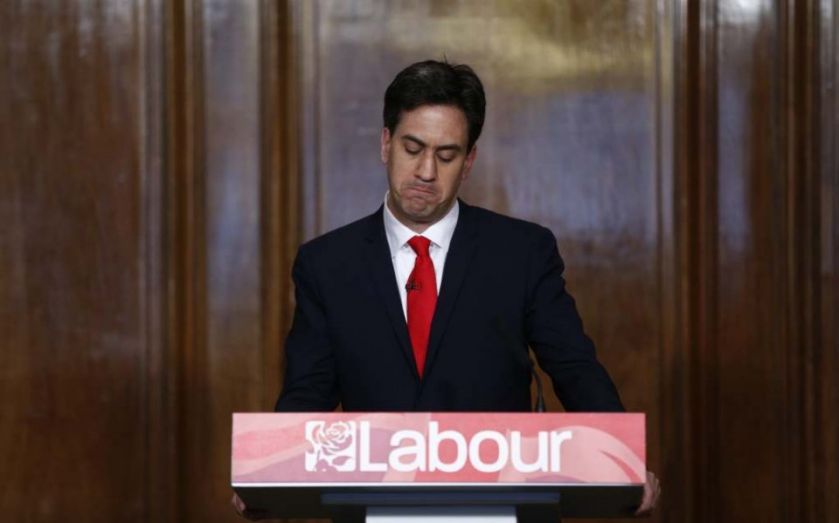Don’t rejoice at Labour’s meltdown: One pro-business party is not enough

On 8 May, a large swathe of the British business community breathed a huge sigh of relief, as it transpired that Ed Miliband’s Labour Party had been decisively defeated in the general election.
Since then, things have gone from bad to worse for the opposition. Only last week, a poll suggested that left wing firebrand Jeremy Corbyn, a politician who still describes himself as a Marxist and believes in unilateral nuclear disarmament and a planned economy, was on the brink of seizing victory and becoming the next Labour leader. Against the backdrop of major splits over welfare reform, and in the midst of the most divisive leadership contest since the 1980s, Labour looks further away from power than at any time since 1983.
Given the party’s new-found antagonism to the private sector, the fact that Labour now appears increasingly unelectable to many voters ought to be cause for rejoicing in Britain’s boardrooms. They are spared the threat of higher property and wealth taxes, alongside the imposition of draconian regulations.
Yet Labour’s meltdown isn’t necessarily good news for the world of private enterprise. For one, Britain’s system of representative democracy relies on a strong and effective opposition to scrutinise and challenge the government of the day. George Osborne announced a sweep of policies in his recent Budget – such as an apprenticeship levy and a rise in vehicle excise duty – whose merits ought to be properly debated. Labour isn’t currently in a position to offer an effective critique of Conservative policies, and the Liberal Democrats are still shell-shocked after their electoral decimation. This leaves the role of official opposition to the Scottish National Party who, after all, would like to break up the United Kingdom. That is bad for our democracy and politics.
More than that, Britain needs more than one major pro-business party that is capable of forming the next government. There is an important debate to be had about the model of capitalism Britain needs: it should not be a crude choice between unthinking adoration of business and outright hostility to the private sector.
Under Miliband, Labour acquired a toxic anti-business reputation, labelling certain companies as “predators” and railing against bankers. Miliband’s attack on the big six energy companies implied that the state should be free to arbitrarily intervene in markets. SMEs would get additional support, but there was little admiration for larger corporations based in the UK.
Instead, Labour should be part of a bigger conversation about how we develop a sustainable model of “inclusive capitalism” in partnership with the private sector. The most imaginative thinking about the future of the market economy has come from key figures in business and finance, as well as academics, policy-makers, civil society, and faith communities. Ideas have emerged on the right as well as the left about the failings of modern capitalism and markets. Charles Moore, Margaret Thatcher’s biographer, has criticised the growth of inequality in market economies. Steve Hilton, David Cameron’s former strategist, hit out at attempts by companies to rig markets while giving poor service to the consumer in his recent book More Human.
Moreover, intelligent business thinkers such as Charles Handy, John Plender and John Kay have argued that companies should serve the interests of a wider group of stakeholders, not only their shareholders: successful businesses are predominantly rooted in their communities, acknowledging their wider social obligations.
In a seminal article in The Harvard Business Review, the business guru Michael Porter argued of today’s capitalism: “A big part of the problem lies with companies themselves, which remain trapped in an outdated approach to value creation that has emerged over the past few decades.” Porter writes that parts of the private sector conceive value creation too narrowly, optimising short-term financial performance and asset values, missing the most important customer needs while ignoring the broader influences that determine long-term success: “Companies must take the lead in bringing business and society back together.”
The point is that there will always be a debate about “good” business and how our market economy can deliver more sustainable and balanced growth. It is in everyone’s interests to have an opposition centre-left party which is fully engaged with wealth creators and those who work in the private sector. Business should be urging Labour’s return to the political mainstream.